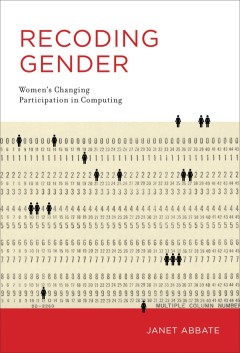Filter by

Software Business: 14th International Conference, ICSOB 2023, Lahti, Finland,…
This open access book constitutes the refereed proceedings of the 23rd International Conference on Software Business, ICSOB 2023, which was held in Lahti, Finland, during November 27–29, 2023. The special theme of ICSOB 2023 was Digital Agility: Mastering Change in Software Business and Digital Services. The 27 full papers and 8 short papers presented in this book were carefully reviewed and…
- Edition
- -
- ISBN/ISSN
- 9783031532276
- Collation
- XVIII, 514
- Series Title
- 500
- Call Number
- -

A few good men from Univac
In this personal memoir, electrical engineer David Lundstrom recalls the heyday of early computing, the rise of Control Data out of the Univac division of Sperry Rand, such milestone computer systems as the Univac and the Naval Tactical Data System the exploits of CDC's top designer Seymour Cray, and the gradual corporate shift from the exciting and technically interesting world of computer des…
- Edition
- -
- ISBN/ISSN
- 9780262256599
- Collation
- 1 online resource (xii, 227 pages, 18 unnumbered pages of plates) :illustrations.
- Series Title
- -
- Call Number
- -

Computers and Commerce: A Study of Technology and Management at Eckert-Mauchl…
The history of a crucial decade in the early development of digital technology, focusing on both technical and business issues at two key firms.Between 1946 and 1957 computing went from a preliminary, developmental stage to more widespread use accompanied by the beginnings of the digital computer industry. During this crucial decade, spurred by rapid technological advances, the computer enterpr…
- Edition
- -
- ISBN/ISSN
- 9780262280723
- Collation
- 1 online resource (x, 347 pages) :illustrations.
- Series Title
- -
- Call Number
- -

Design Rules: The Power of Modularity
We live in a dynamic economic and commerical world, surrounded by objects of remarkable complexity and power. In many industries, changes in products and technologies have brought with them new kinds of firms and forms of organization. We are discovering news ways of structuring work, of bringing buyers and sellers together, and of creating and using market information. Although our fast-moving…
- Edition
- -
- ISBN/ISSN
- 9780262267649
- Collation
- 1 online resource (volumes ) :illustrations
- Series Title
- -
- Call Number
- -

Recoding gender :women's changing participation in computing
The untold history of women and computing: how pioneering women succeeded in a field shaped by gender biases. Today, women earn a relatively low percentage of computer science degrees and hold proportionately few technical computing jobs. Meanwhile, the stereotype of the male “computer geek” seems to be everywhere in popular culture. Few people know that women were a significant presence…
- Edition
- -
- ISBN/ISSN
- 9780262305464
- Collation
- 1 online resource (x, 247 pages) :illustrations.
- Series Title
- -
- Call Number
- -
Portraits in silicon
Short biographies of: Charles Babbage, Alan Turing, John von Neumann, Claude Shannon, Konrad Zuse, John V. Atanasoff, John V. Mauchly, J. Presper Eckert, Howard Aiken, Jay W. Forrester, Thomas J. Watson, Sr., William Norris, H. Ross Perot, William Shockley, Robert Noyce, Jack Kilby, Marcian E. (Ted) Hoff, Gene Amdahl, Seymour Cray, Gordon Bell, Grace Murray Hopper, John Backus, John Kemeny, Tho…
- Edition
- -
- ISBN/ISSN
- 9780262291422
- Collation
- 1 online resource (xiv, 374 pages) :illustrations, portraits
- Series Title
- -
- Call Number
- -

Cracking the bro code
"Cracking the Bro-Code is an ethnography that engages women navigating male-dominated cultures of computing. It provides evidence of women's experiences to reveal the values and practices of U.S.-based high-tech institutions and how they reproduce discrimination and harassment not only in their workplaces, but also in the broader political economy"--OCLC-licensed vendor bibliographic record.
- Edition
- -
- ISBN/ISSN
- 9780262377157
- Collation
- 1 online resource.
- Series Title
- -
- Call Number
- -

Balkan cyberia :Cold War computing, Bulgarian modernization, and the informat…
"Original take on the history of socialist Bulgaria, examined through the prism of computers to make broader claims about political, economic, intelligence, social, and cultural life in Bulgaria, and by extension, the Soviet bloc and state socialism in general"--OCLC-licensed vendor bibliographic record.
- Edition
- -
- ISBN/ISSN
- 9780262373265
- Collation
- 1 online resource.
- Series Title
- -
- Call Number
- -

IBM :the rise and fall and reinvention of a global icon
A history of one of the most influential American companies of the last century. For decades, IBM shaped the way the world did business. IBM products were in every large organization, and IBM corporate culture established a management style that was imitated by companies around the globe. It was "Big Blue", an icon. And yet over the years, IBM has gone through both failure and success, survivin…
- Edition
- -
- ISBN/ISSN
- 9780262351485
- Collation
- 1 online resource (752 pages).
- Series Title
- -
- Call Number
- -

Building IBM :shaping an industry and its technology
No company of the twentieth century achieved greater success and engendered more admiration, respect, envy, fear, and hatred than IBM. Building IBM tells the story of that company, how it was formed, how it grew, and how it shaped and dominated the information processing industry. Emerson Pugh presents substantial new material about the company in the period before 1945 as well as a new interpr…
- Edition
- -
- ISBN/ISSN
- 0585353468
- Collation
- 1 online resource (xvi, 405 pages) :illustrations.
- Series Title
- -
- Call Number
- -
 Computer Science, Information & General Works
Computer Science, Information & General Works  Philosophy & Psychology
Philosophy & Psychology  Religion
Religion  Social Sciences
Social Sciences  Language
Language  Pure Science
Pure Science  Applied Sciences
Applied Sciences  Art & Recreation
Art & Recreation  Literature
Literature  History & Geography
History & Geography